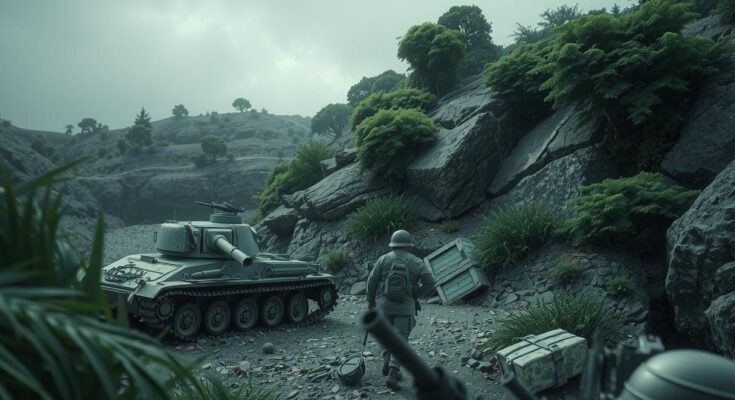The Democratic Republic of Congo’s military is struggling against the M23 militia due to widespread issues like corruption and lack of resources. Despite efforts by President Félix Tshisekedi to strengthen the military, recent advances by M23 have exposed the army’s weaknesses and led to political isolation for the president. The situation is further complicated by Rwanda’s support for M23, highlighting both external and internal challenges facing the Congolese government.
The ongoing conflict in eastern Congo has highlighted significant shortcomings within the Democratic Republic of Congo’s military, which has long been plagued by issues such as corruption, extortion, and human rights abuses. Despite having a large army, the Congolese military is hampered by underfunding, inadequate equipment, and internal factions that pursue divergent interests. Successive administrations have reportedly kept the military weak, primarily out of concern over potential coups.
Recently, the militia known as M23 has made significant advances in eastern Congo, capturing two major cities along with crucial airports and extensive territories. President Félix Tshisekedi had anticipated this conflict, attempting to bolster military capabilities, yet the rapid advances of M23 have rendered those efforts ineffective, isolating him politically and severely diminishing his domestic support.
Rwanda, which borders Congo, is believed to be supporting the M23 militia by providing training and arms, although it denies fully controlling the group. According to reports from the United Nations, this external support underscores the dual challenges faced by Congo: external aggression combined with internal dysfunction.
In an interview, President Tshisekedi attributed the army’s failures to infiltration by foreign elements and criticized his predecessor for neglecting the issue. This situation continues to complicate efforts aimed at stabilizing the region, as peace talks with neighboring countries remain stagnant amid mounting pressure on the Congolese government.
In summary, the conflict involving M23 in eastern Congo underscores the critical weaknesses of the Congolese military, exacerbated by external support from Rwanda and internal struggles with corruption and disorganization. President Tshisekedi’s attempts to address these issues have largely fallen short, leaving the army unable to effectively counter the militia’s advances. As a result, the political landscape in Congo is increasingly unstable, presenting challenges for both domestic governance and international relations.
Original Source: www.nytimes.com




